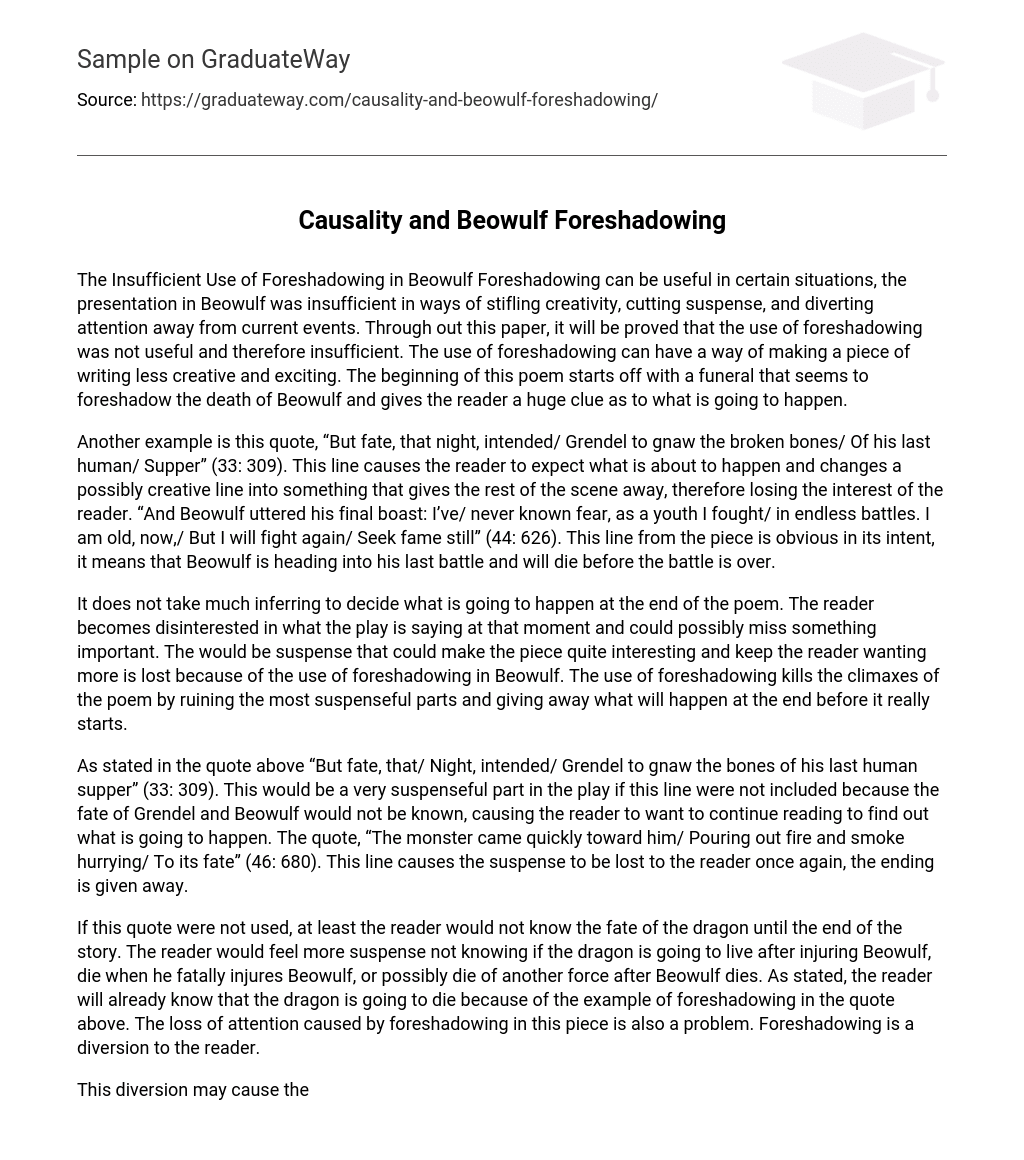This paper aims to demonstrate the negative effects of insufficient foreshadowing in Beowulf on creativity, suspense, and the focus on present events. It will show how ineffective and inadequate foreshadowing can diminish excitement and imagination in writing. The poem begins with a funeral, which clearly hints at Beowulf’s eventual death and provides readers with a significant clue about what is to come.
Another example is this quote, “But fate, that night, intended/ Grendel to gnaw the broken bones/ Of his last human/ Supper” (33: 309). This line creates anticipation for the upcoming events and transforms a potentially imaginative line into a spoiler, subsequently diminishing the reader’s interest. “And Beowulf uttered his final boast: I’ve/ never known fear, as a youth I fought/ in endless battles. I am old, now,/ But I will fight again/ Seek fame still” (44: 626). This quote clearly implies that Beowulf is entering his ultimate battle and will not survive until the end.
It is easy to infer the outcome of the poem. At this point, the reader loses interest and may miss something significant. Foreshadowing in Beowulf eliminates suspense, making the poem less interesting and revealing the ending prematurely.
According to the quote, “But fate, that Night, intended Grendel to gnaw the bones of his last human supper” (33: 309), the suspense in the play would be diminished if this line was excluded. Without knowing the fate of Grendel and Beowulf, the reader would be compelled to continue reading in order to find out what will happen. Similarly, the quote “The monster came quickly toward him, Pouring out fire and smoke hurrying to its fate” (46: 680) takes away from the suspense once again by giving away the ending.
If this quote is not used, the reader will be unsure of the dragon’s fate until the end of the story. The uncertainty includes whether the dragon will survive after injuring Beowulf, perish when he fatally injures Beowulf, or potentially succumb to another force after Beowulf’s death. This would create more suspense for the reader. However, because of foreshadowing in this quote, it is already known that the dragon is destined to die. Additionally, foreshadowing in this piece becomes problematic as it distracts the reader.
By diverting the reader’s attention to future events, this diversion in the text may cause them to overlook something important in the present work. Instead of focusing on their current reading, they may be contemplating what they are going to read. For instance, the quote “And Beowulf uttered his final boast: / I’ve never known fear, as a youth I fought/ In endless battles. I am old, now, / But I will fight again, seek fame still” (44: 626) takes the reader away from the current happenings to Beowulf and prompts them to consider what will occur at the end of the story.
The reader may become disinterested in Beowulf’s thrilling battle, a crucial scene and turning point in the narrative. In summary, Beowulf is a poem that imparts lessons, emphasizes honor, and delves into ancient lore. The author’s use of foreshadowing likely aimed to enhance the poem’s significance. It could have been a more gripping and captivating story if the foreshadowing was employed sparingly, or in subtler ways that would leave the reader pondering and intrigued about the forthcoming events rather than foretelling them.





